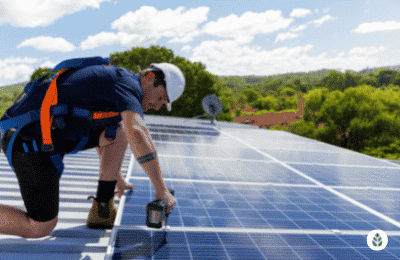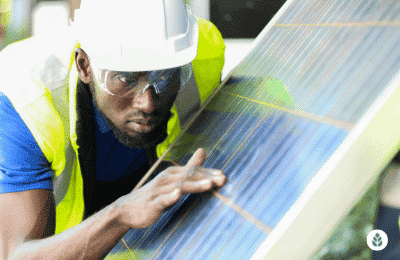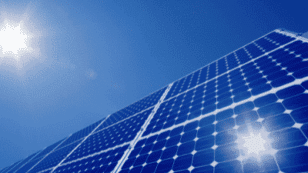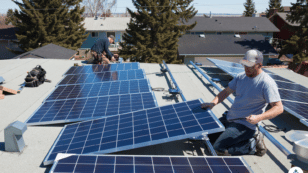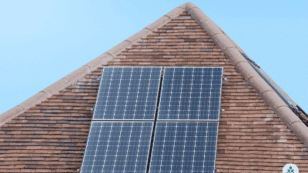
Top 6 Best Solar Companies in Tennessee (2024 Reviews)
In this guide to the best solar panel installation companies in Tennessee, you’ll learn:
- What are the most reliable solar installers in Tennessee?
- How can the solar panel company you choose affect your cost of converting to solar in Tennessee?
- What are the most important characteristics to look for in a Tennessee solar company?
Each product and or company featured here has been independently selected by the writer. You can learn more about our review methodology here. If you make a purchase using the links included, we may earn commission.
What Are Tennessee’s Top 6 Solar Energy Companies?
For Solar options in Tennessee residents have over 60 installation companies to choose from for their solar energy systems, according to the Solar Energy Industries Association (SEIA). All of these installers provide different quality systems, warranty coverage and equipment, so choosing the best one for your needs can be a challenge.
We’ve researched all of the installers that serve TN so that you don’t have to. Below are the solar companies we’ve found to be the best options overall for Tennesseans:
- Shine Solar, LLC: Outstanding Regional Installer
- Lightwave Solar: Outstanding Local Installer
- SunPower Solar: Best National Provider
- ADT Solar: Best Warranty Coverage
- Greene Tech Renewable Energy: Outstanding Local Installer
- GES Solar: Outstanding Regional Installer
You can use the drop-down menus below to get more information on each of these companies and decide which works best for your needs and budget.

Shine Solar, LLC

Regional Service
Average cost
Pros
- Many financing options
- Great warranty coverage
- Offers a panel buy-back option
- Outstanding workmanship
Cons
- Relatively young company
- Limited brands of solar equipment available
Shine Solar is one of our top-rated companies in Tennessee because of its below-average solar panel prices and above-average warranty coverage.
Solar systems in Tennessee average around $8,500 higher than the national average — $38,520 before the tax credit, on average, as opposed to the national average of $29,970 — which means every dollar counts when choosing an installer. Shine Solar maintains below-average costs, helping to keep solar affordable in a naturally more expensive area like Tennessee. It also accepts most payment options, making solar more accessible overall. We suggest a cash purchase or solar loan, but having access to leases as well does help improve the company’s accessibility.
Its warranty coverage includes a 25-year manufacturer’s warranty for the equipment, which is average, plus a 12-year labor warranty, which is two years longer than the industry average.
Workmanship is especially important in an area like Tennessee, where issues with the installation can lead to severe property damage during the above-average rainfall and severe weather that are common.2,3
Shine Solar only carries a single panel brand — Silfab — which means you’ll have fewer options for customization. However, Silfab panels have an above-average efficiency rating at an excellent price point, meaning they’re suitable for use in Tennessee, where high energy needs demand highly efficient panels.
Shine Solar does, however, carry and install solar batteries. Batteries are often a good option for homeowners who don’t have access to net metering from their electric companies because they give you access to effective net metering. While they push up your installation costs by between $10,000 and $20,000 in most cases, they also help maximize your savings over time. This is important in an area like Tennessee, where net metering is not mandated, and the monthly electricity consumption averages around 1,168 kWh per month, which is well above the national average of 881 kWh.
Batteries are also likely to become important for all Tennessee residents — even those who currently have access to net metering — because the policy is getting downgraded in other states and is likely to take a hit or even disappear entirely in Tennessee in the coming years.
Facts and Figures: Shine Solar, LLC
| EcoWatch Rating |
|---|
| Better Business Bureau (BBB) Rating |
| Average Cost ($-$$$$$) |
| Solar Services |
| 4.5 |
| A- |
| $$ |
| Solar Panels, Solar Batteries, HVAC Services, Energy-Efficiency Upgrades |

LightWave Solar

Local Service
Average cost
Pros
- NABCEP-certified technicians
- Excellent reputation
- Offers products from leading manufacturers
Cons
- No leases or PPAs
- Limited service area
We recommend Lightwave to solar customers in Tennessee because of the variety of solar brands it offers and the experience of the installers in Tennessee, specifically.
Lightwave carries more than six of the best residential solar panel brands, which is more than most companies. More importantly, most of those brands — including SunPower, REC and Tesla — have an above-average efficiency rating. SunPower/Maxeon panels provide the highest efficiency rating of 22.7%, making them ideal for maximizing production and solar savings.
Efficiency is crucial in Tennessee if you want your panels to cover the high energy needs — 1,168 kilowatt-hours (kWh) on average, compared to the national average of 881 kWh.
Lightwave is also headquartered right in Nashville, and its technicians have been accruing localized experience for over 15 years. Many of them are certified by the North American Board of Certified Energy Practitioners (NABCEP), and the company as a whole has outstanding ratings for customer service.
Lightwave installs batteries, which, again, are important in an area like Tennessee where net metering isn’t universally available. Batteries can help push your solar savings toward the state average of $25,153 after your panels pay for themselves, so they’re very often worthwhile.
Lightwave only accepts cash payments and solar loans, so its services aren’t as accessible as some other companies. However, we think its products and local expertise are well worth the upfront cost.
Facts and Figures: LightWave Solar
| EcoWatch Rating |
|---|
| Better Business Bureau (BBB) Rating |
| Average Cost ($-$$$$$) |
| Solar Services |
| 4.5 |
| A+ |
| $$$ |
| Solar Panels, Solar Batteries, System Monitoring, Solar Carports |

SunPower
Pros
- Most efficient panels on the market
- National coverage
- Cradle to Cradle sustainability certification
- Great warranty coverage
Cons
- Expensive
- Customer service varies by local dealer

Greene Tech Renewable Energy

Local Service
Average cost
Pros
- NABCEP-certified technicians
- Offers products from leading manufacturers
- Competitive pricing
Cons
- Limited information available on website
- Limited warranty coverage
Green Tech Renewable Energy (GTRE) is a local company headquartered in Johnson, Tennessee. Its techs have over a decade of local experience, so they’re well-equipped to install a system that can meet your above-average energy needs and stand up to Tennessee’s extreme weather.
GTRE carries over ten solar panel brands, which is far more than most competitors. That means you’ll have quite a few options to maximize energy production, meet your energy demands and still get a system that falls within your budget.
Many of the panel options have efficiency ratings over 20% — including LG, Panasonic, Trina and Canadian Solar. These should provide plenty of power to offset the high consumption rates in Tennessee.
GTRE also has below-average pricing for its systems and services. Although they only accept cash payments and solar loans — making them a bit less accessible — their pricing model helps to keep solar energy as affordable as possible.
GTRE is another installer that started offering batteries early on, which is great for Tennessee homeowners, many of which don’t have access to net metering. You’re more likely to be able to achieve the average solar panel payback period of 13 years and push toward the average lifetime solar savings of $25,125 if you don’t have access to net metering but opt to install batteries.
Facts and Figures: Greene Tech Renewable Energy
| EcoWatch Rating |
|---|
| Better Business Bureau (BBB) Rating |
| Average Cost ($-$$$$$) |
| Solar Services |
| 3.5 |
| Not Rated |
| $$ |
| Solar Panels, Maintenance & Repairs, System Monitoring, Equipment Sales |

GES Solar

Regional Service
Average cost
Pros
- NABCEP-certified technicians
- Offers products from leading manufacturers
- Educational, no-pressure sales approach
- Slightly expensive
- Limited information available on website
Cons
GES Solar is a great option in Tennessee because its technicians are highly experienced in the area — with over ten years of experience — and most are NABCEP certified. Some even carry electrician certifications.
Although the company doesn’t disclose its warranty information, the experience of the techs suggests that your system will be installed properly and won’t leave you with system or property damage, even through the above-average precipitation and extreme weather in the area.
GES Solar offers a handful of panel brands that boast above-average efficiency ratings. High-efficiency panels are more likely to offset the above-average consumption in TN, which means they’re more likely to save you money in the long run.
GES Solar only tackles rooftop solar systems and ground-mount panels, so customers looking for solar storage solutions will need to choose a different solar provider. Batteries are a popular option in TN due to the lack of net energy metering, so this is a pretty major downside of GES. Still, its expertise in installing panels in the area is a significant upside. And if you have access to net metering through your electric company, we think this is a stellar option.
Facts and Figures: GES Solar
| EcoWatch Rating |
|---|
| Better Business Bureau (BBB) Rating |
| Average Cost ($-$$$$$) |
| Solar Services |
| 3.5 |
| Not Rated |
| $$$$ |
| Solar Panels, Maintenance & Repairs, Commercial Solar |
Watch Below: Will Solar Panels Save / Make You Money?
How Can You Save Money When Hiring A Solar Company In Tennessee
The average cost of solar panel systems in Tennessee totals around $38,520 before any incentives. This assumes a per-watt price of $3.21 — which is well below the national average of $3.33 — and an average system size of 12 kilowatts (kW) needed to fully offset a home’s energy use, which is much larger than most Americans need.
The above-average cost of solar systems in TN can make converting to solar power prohibitively expensive for many residents. Luckily, there are some things you can do to keep costs down when choosing an installer. These include:
- Take advantage of incentives for PV equipment wherever possible
- Choose a high-efficiency solar panel brand
- Consider installing a battery alongside your panels
- Get multiple quotes
We’ll discuss how these tips can save you money in the sections below.
Take All the Incentives Available to You
First off, every solar customer in the U.S. can currently save thousands of dollars, on average, by taking advantage of the solar incentives available in their area, and that includes Tennessee. The Volunteer State has fewer benefit programs available than most states, but the ones available are still a great way to bring down your effective system costs.
We’ll include a breakdown of all of the solar perks you can take in TN in the table below.
| Solar Benefit Program | Description |
| Federal Solar Investment Tax Credit (ITC) | The ITC is a credit offered by the federal government for 30% of your entire system cost. In TN, this federal tax credit averages out to $11,556. This amount gets applied to the income taxes you owe for the year you install your system, although it can be rolled over for five years if you can’t take it all at once. |
| Green Energy Property Tax Assessment | This is a partial property tax exemption for your solar equipment. Since converting to solar boosts your property value, installing a system would normally bump up your taxes. This exemption will only increase your tax-assessed value by 12.5% of your system value.4 This isn’t as beneficial as a full exemption, but it still helps to keep the ongoing costs of converting to solar down. |
| Sales Tax Credit for Clean Energy Technology | The State of Tennessee waives sales tax for solar energy equipment, including solar systems. With an average system cost of $38,520 and a sales tax rate of 7%, this tax exemption saves an average of $2,696 upfront.5 |
| Local Solar Rebates & Perks | Some utility companies and local municipalities offer additional solar benefit programs to help keep the cost of converting down. The Knoxville Utilities Board, Pathway Energy and Bristol Tennessee Electric Service are all examples of companies that provide local incentives. |
For more information on the perks available in TN and how you can apply for these programs, you can check out our guide to solar incentives in Tennessee.
Choose a High-Efficiency Panel Brand
Another great way to save money when choosing a solar installer is to pick one that offers high-efficiency solar panel brands. Tennessee receives just over the average number of sunny days per year, but residents also use well above the average amount of energy each month. High consumption necessitates high-efficiency panels to offset utility bills.
Rather than bumping up the size of your system to get production to match demand, choosing a panel with an efficiency of at least 20% can help keep upfront costs down and still meet your needs.
Some of the efficient panel brands that work well in TN include:
- SunPower/Maxeon
- Panasonic
- Canadian Solar
- Q Cells
- REC
- Trina Solar
Consider a Solar Battery
Next, we recommend considering choosing an installer that offers panel and solar battery installations.
Unfortunately, Tennessee is one of the few states that don’t mandate net metering — also called net energy metering. Net energy metering is a policy that credits you for all over-production and lets you call on those credits at no cost if you ever need to pull electricity from the grid. Net metering is one of the most valuable solar perks, as it makes fully eliminating energy bills possible.
Installing a solar energy storage solution will increase your initial outlay of money by between $10,000 and $20,000 in most cases, but in areas like Tennessee where a net metering policy isn’t mandated, paying more for a battery can often save you money in the long run.
We recommend at least speaking with your installer about battery installation and whether or not it would benefit you over time.
Get Multiple Quotes
Finally, we suggest you get a few free quotes from companies that serve your area. With over 40 solar installers in Tennessee, you’ll see a wide range of system prices based on equipment and labor costs offered by each. Quotes for identical systems from two different installers can be hundreds or even thousands of dollars apart.
We recommend you get a quote from at least three of the installers above or other companies that you research on your own. You can then compare based on price and value and choose the one that suits you and your home best.
For more guidance on what your system will cost and how much you can save, you can use our solar calculator.
Will Solar Increase Your Home Value In Tennessee?
Yes, installing a solar panel system is expected to bump up your property value in TN. Estimates from Zillow suggest that going solar can make your home around 4.1% more valuable, on average.6 With an average property value of around $309,913, Tennessee property owners can expect to see a typical bump of about $12,706.7
Tennessee offers a partial property tax exemption, which means that increase in value won’t affect your taxes as much as other home improvements of the same value would.
We should also mention that residents in Nashville and Memphis might see lower increases in property values from solar conversion. Unfortunately, local utility companies — including Nashville Electric Company and Memphis Light Gas & Water — have imposed fees on solar customers’ accounts, which make solar less appealing and less valuable.
In other major cities where similar fees are not imposed — like Antioch and Murfreesboro — the property value increase is expected to be a bit higher due to higher property values.
Should Tennessee Residents Hire a Professional Solar Installer Or DIY?
With solar conversion costs totaling close to $39,000 in TN, many residents consider DIY solar panel installation. Typical DIY costs for a solar system average between $15,000 and $20,000, making them more appealing from a purely financial perspective.
Unfortunately, DIY systems aren’t ideal in Tennessee for a few reasons. These include:
- Lower efficiency ratings for DIY panel brands
- Shorter and less comprehensive warranties on DIY panels
- A higher risk of improper installation and resulting property damage with DIY systems
We’ll explain each of these drawbacks in greater depth below.
DIY Panels Have Lower Efficiency Ratings
First off, solar panels available for DIY installation — including brands like Renogy and WindyNation — have lower efficiency ratings overall. The typical efficiency for DIY brands is between 15% and 20% and is usually on the lower end of that range. Professionally-installed panels average over 20%, with efficiencies as high as 22.7%.
Panel efficiency is a crucial factor in TN for two reasons. First off, the efficiency rating determines how much of the available sunlight can be used to produce electricity. Higher efficiencies translate to more power, which means more savings over time. This is important in an area like Tennessee, where the average consumption is already well above average — 1,168 kWh per month, more than 30% higher than the national average of 881 kWh.
Second, the savings you’ll see from high-efficiency panels often outweigh what you’d save by choosing a DIY system. This is largely due to the above-average energy usage in TN, which means utility bills are also above-average.
DIY System Warranties Aren’t as Appealing
Second, the warranty coverage on your solar project is a crucial consideration in TN. All three warranty options matter:
- Equipment warranties help keep your system protected in case of defective products or equipment
- Efficiency warranties help ensure that your panels don’t degrade more quickly than anticipated
- Workmanship warranties help ensure that the installation process doesn’t lead to panel or property damage. Damages can be common in TN, where rainfall is above average and extreme weather can expose even minor issues with installations
Warranty coverage for DIY systems usually includes five to ten years for the equipment and efficiency and no coverage for workmanship. Professional panels offer far better protection, with an average of 25 years for equipment and panel production and ten years for workmanship.
System and Property Damage Are More Common With DIY Installations
Finally, DIYers are far more likely to make mistakes during the solar installation process. Even minor issues can be severely problematic over time. Specifically, the rainfall in TN is between 1.5 and two times the national average, which can make roof leaks and water damage more likely.
A professional installation will cost you more initially, but you could save money on home and system repairs if your DIY installation leads to issues. An experienced professional will also provide peace of mind that you won’t see major issues with your system, which is worthwhile on its own, in our opinion.
What Should Tennesseans Look For in a Solar Installer?
Choosing a solar installer in an area like TN, where you have dozens of options, can be intimidating. However, there are a few characteristics that we recommend focusing on to make your decision a bit easier. These include:
- Robust warranty coverage
- Panel brands
- Local experience and reputation
We’ll explain why these things matter so much in the sections below.
Robust Warranty Coverage
As mentioned above, solar warranties are a key consideration for ensuring your system is installed properly and can meet your energy demands. While all three types of solar warranties are helpful, we recommend prioritizing production warranties in Tennessee.
Production is so crucial because TN residents have some of the highest energy needs in the country.8 In order to match consumption and save you the most on your electricity rates, your panels need to have a high production capacity. An efficiency warranty (sometimes called other names like performance guarantees) ensures sufficient energy generation for an average of 25 years, which is outstanding.
The best companies will offer you compensation in return in case your system doesn’t perform as advertised.
Equipment Offered
Next, we suggest prioritizing companies that offer top-tier solar panel brands for the same reasons efficiency warranties are so important. More power production capability means more energy generation in all situations, which leads to greater savings on electric bills over time.
Additionally, we strongly recommend choosing a solar installer that offers solar batteries. At the risk of belaboring the point, Tennessee doesn’t mandate net metering, and since NEM policies are in decline in other states — including California, which has historically been the most solar-friendly state — we don’t expect it to become mandated in Tennessee. As such, customers will need to get access to effective net metering by installing batteries to maximize their savings. Going with a provider that carries and installs batteries at least gives you the option of seeing if a solar storage solution would benefit you.
Local Experience and Reputation
Finally, we suggest looking for companies with at least five years of local experience and a positive customer reputation.
In an area like TN, where the solar industry is really starting to take off, we’re seeing more and more companies popping up to take advantage of the demand.
While young companies aren’t always bad, their lack of experience does tend to lead to delays and potential issues with installation. Plus, they’re more likely to go out of business and void your warranties in the process.
Choosing an installer with years of experience in TN specifically and a positive reputation among customers is a great way to ensure you get quality service and a low risk of issues throughout the installation process.
The cost information presented in this article is derived from a comprehensive analysis, incorporating data from multiple industry sources. The average cost per watt per state was calculated based on figures from Consumer Affairs, Energy Sage, and Berkeley Lab’s Electricity Markets & Policy Department. Additionally, monthly energy consumption and the average monthly cost of electricity were sourced from the U.S. Energy Information Administration, ensuring a well-rounded and accurate representation of the information presented.
Methodology: How We Ranked Tennessee’s Solar Companies
Our goal in reviewing solar companies in your area is not only to provide you with an affordable and accessible solar installer recommendation but also one that provides above-average system value and long-term savings. We customize our company ratings for TN residents, specifically, by using the weighted criteria below:
- Solar Products & Services (20%)
- Solar Warranty & Customer Support (20%)
- Solar Cost & Financing Options (15%)
- Qualifications, Reputation & Certifications (15%)
- Experience (10%)
- Availability (10%)
- Environmental, Social and Corporate Governance Factors (10%)
Plus, we always provide unbiased company recommendations, and our methodology is never affected by partnerships. We’ll explain how we compare companies to the industry averages in each of these categories below.
Solar Products & Services
Most companies in the industry install PV panels and solar batteries and offer energy efficiency audits at the very least. We use this as the baseline to compare TN companies to, so installers that provide more specialized products and services get ranked higher.
For example, companies like Shine Solar and Lightwave that offer solar carports and HVAC services get higher ratings in this category, as they’ll appeal to more customers. Others that offer turnkey energy solutions that include solar shingles/solar roofs, solar water heaters and other equipment will rank higher as well.
In TN, where net energy metering isn’t available on a statewide level, we drop our ratings for companies that don’t provide solar batteries. Batteries are an essential part of long-term savings for many Tennesseeans.
Solar Warranty & Customer Support
Next, we look at the warranties offered by each company and the installer’s reputation for responding to warranty claims in a timely manner. We use the below industry averages to compare installers in TN:
- 25-year warranty for equipment
- 20 to 25-year warranty for panel efficiency
- 10-year warranty for labor
All of these coverages are important no matter where you live. However, efficiency and labor warranties are most important for maximizing solar production and standing up to Tennessee’s above-average rainfall and extreme weather. As such, these bear the most influence on our ratings for system protection.
Solar Cost & Financing Options
The cost of solar systems in Tennessee is way above the national average, which means systems are naturally less affordable and accessible. As such, we prioritize companies that offer below-average or average pricing. We also prioritize companies that offer flexible financing plans — the more options, the better.
We also look for companies that accept cash payments, loans, leases and PPAs. Although we generally don’t recommend the last two options, they do help make clean energy more accessible overall and can be beneficial for some customers.
Qualifications, Reputation & Certifications
As mentioned above, the solar industry in TN is really starting to take shape, and lots of companies are coming into the space to turn a profit. While there’s nothing inherently wrong with young companies, we do look for additional qualifications and certifications to help establish each installer as an experienced and worthwhile company.
Some things we look for in terms of qualifications and reputation include:
- Certification from the North American Board of Certified Energy Practitioners
- Green Building certification from LEED (Leadership in Energy and Environmental Design)
- Affiliations with local solar organizations, Solar United Neighbors of Tennessee or TenneSEIA (Tennessee Solar Energy Industries Association)
- At least 100 reviews on Google with a minimum of four stars
- BBB accreditation and an A+ rating
Experience in Tennessee
As solar becomes more popular and affordable in Tennessee, more companies are joining the local industry to keep up with demand. As mentioned above, new companies aren’t always problematic, but they’re more likely to experience delays in the permitting process. Plus, their techs are less experienced in most cases, which can lead to problems and property damage.
We look for companies with at least five years of experience in TN, specifically. Companies with ten years or more get perfect scores in this category.
Availability
Tennessee is largely rural, which makes it more difficult and expensive for solar installers to serve the entire state or large portions of it. Many focus on larger cities, where demand is concentrated. Since installers with a wider service area will naturally appeal to more of our readers, we rank those a bit higher.
Environmental, Social & Corporate Governance Factors
Finally, we look at each company’s impact on the environment, the communities it serves and the industry as a whole. Some things we rank companies higher for include:
- Solar panel recycling services
- Low carbon emissions and an internal commitment to sustainability
- Affiliations with solar-for-low-income-household organizations
- An educational approach to solar sales
FAQ: Best Solar Companies in Tennessee
In the sections below, we’ll answer some questions you may still have about choosing a solar installer in TN. These are some of the most common questions we see from property owners in your area.
Many homeowners look for the best, most affordable solar solution. If you’re looking for an excellent, affordable option, we recommend obtaining quotes from a few of your top choices. Once you have them, compare them and go with the company that best fits your needs.
For TN residents, we suggest prioritizing warranty coverage and companies that offer high-efficiency panel brands, like SunPower and Tesla. Given the above-average electricity consumption and the propensity for extreme weather in the area, these factors will likely yield the most affordable installers upfront and those that save you the most in the long run.
Here at EcoWatch, we think there are quite a few critical factors to consider when choosing the top solar company in Tennessee.
For example, the best companies tend to have dozens of excellent customer reviews, a high Better Business Bureau rating, numerous years in service, fantastic warranties, provide information on tax credits and rebates, etcetera.
However, the most critical factor falls on your priorities as the homeowner. If affordability is the most important priority, then you’ll likely look for a company with the best rates.
Tennessee residents may find that a national solar company is better suited to their needs than a smaller, local option. Larger companies may be able to offer quicker service or more affordable rates, which is a defining factor for some folks.
On the other hand, other Tennessee residents may prefer the services of a local company. Ultimately, the decision to stay local or go national is up to the homeowner.
Related articles
Top Solar Installers in Tennessee Cities
Comparing authorized solar partners
-
- Many financing options
- Great warranty coverage
- Offers a panel buy-back option
- Outstanding workmanship
- Relatively young company
- Limited brands of solar equipment available
A-Outstanding Regional Installer
Having trouble deciding? Click below and use our process to receive multiple quotes instead:

 233k
233k  41k
41k  Subscribe
Subscribe 

